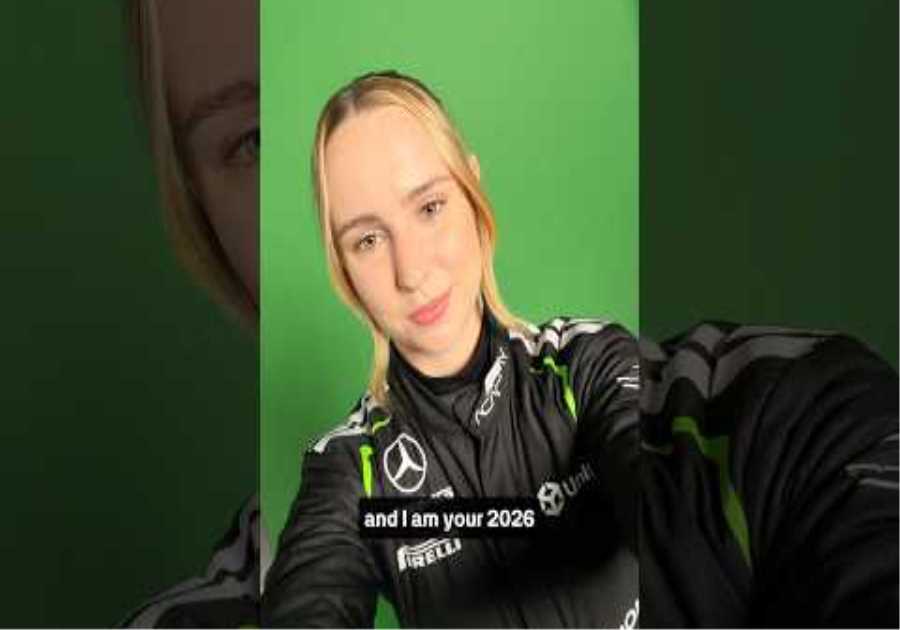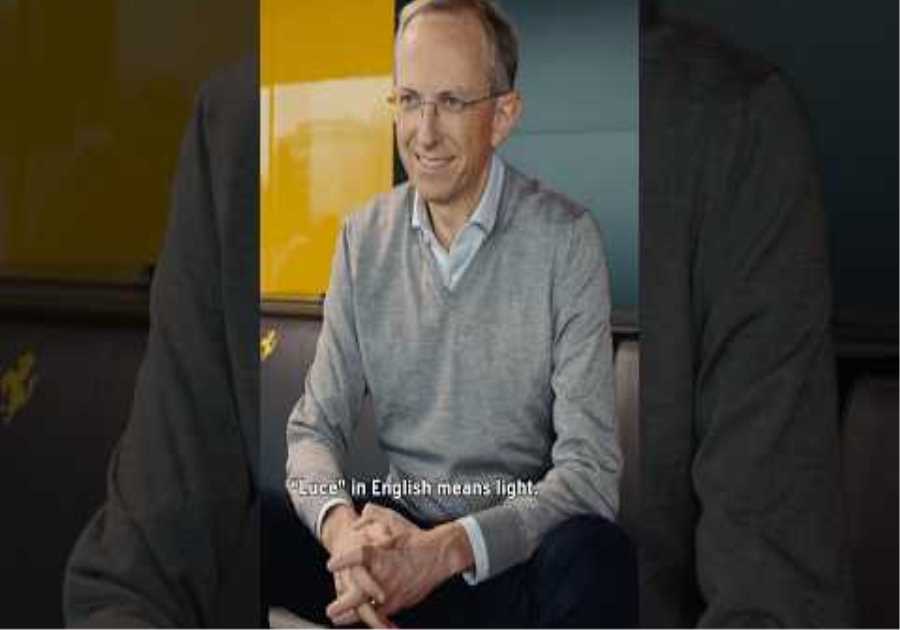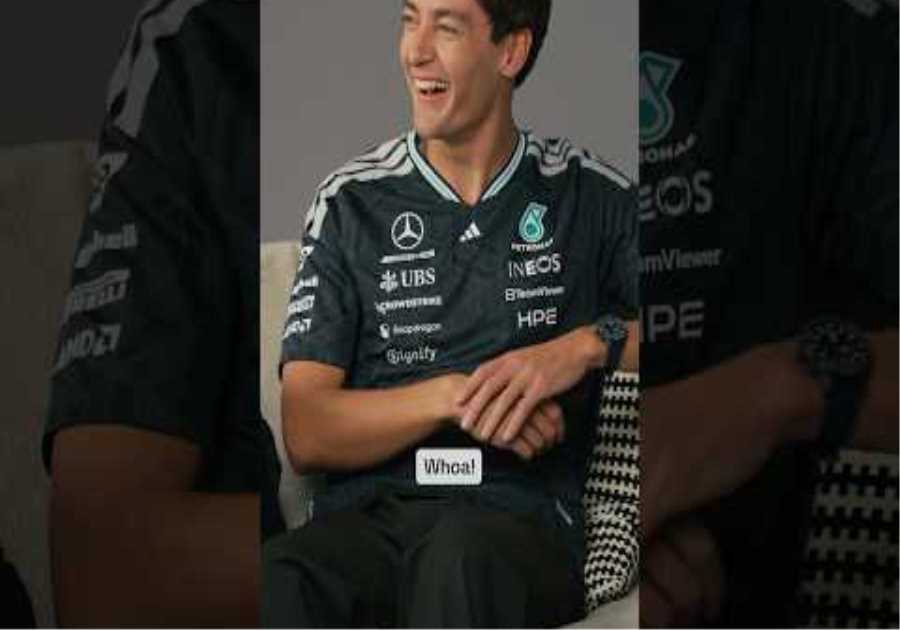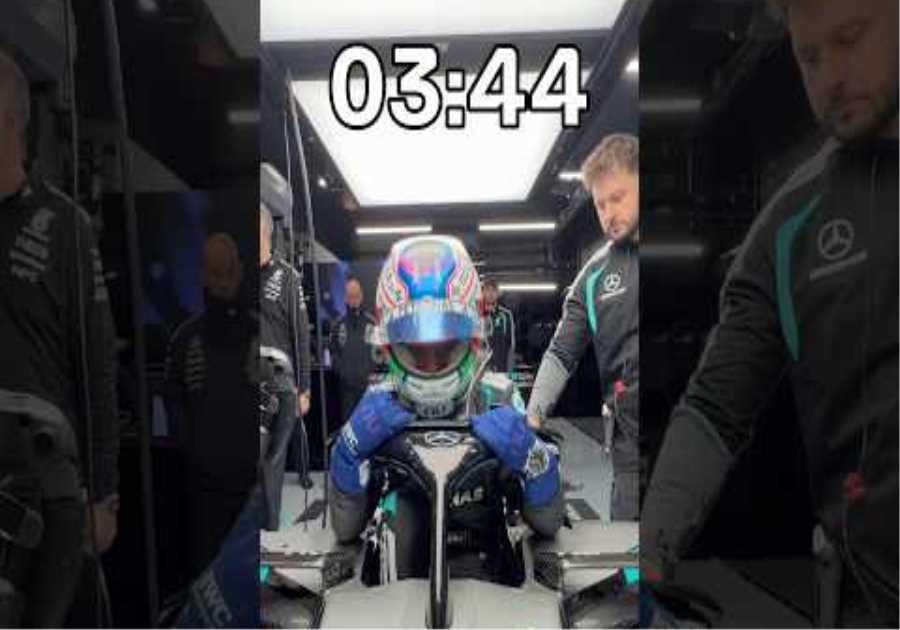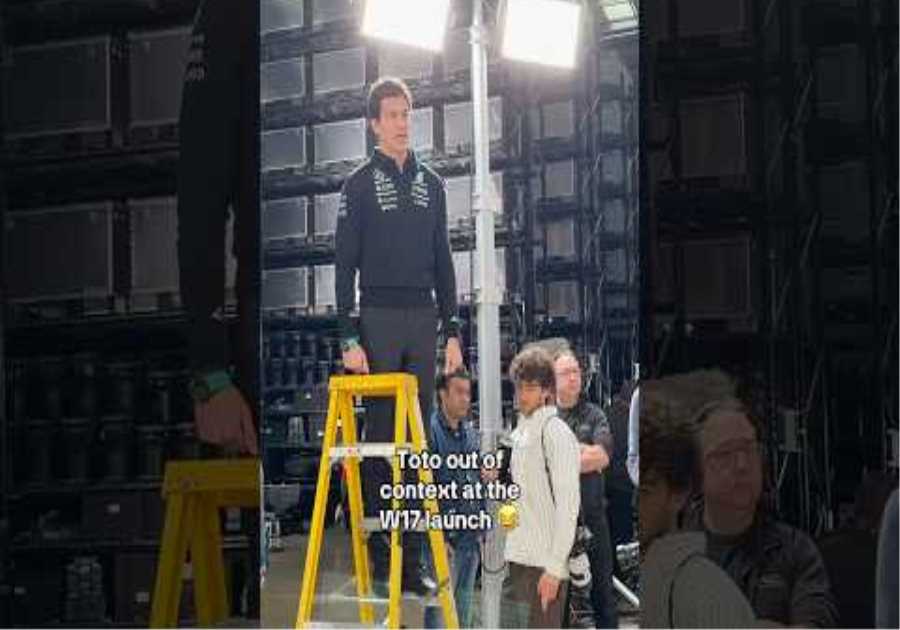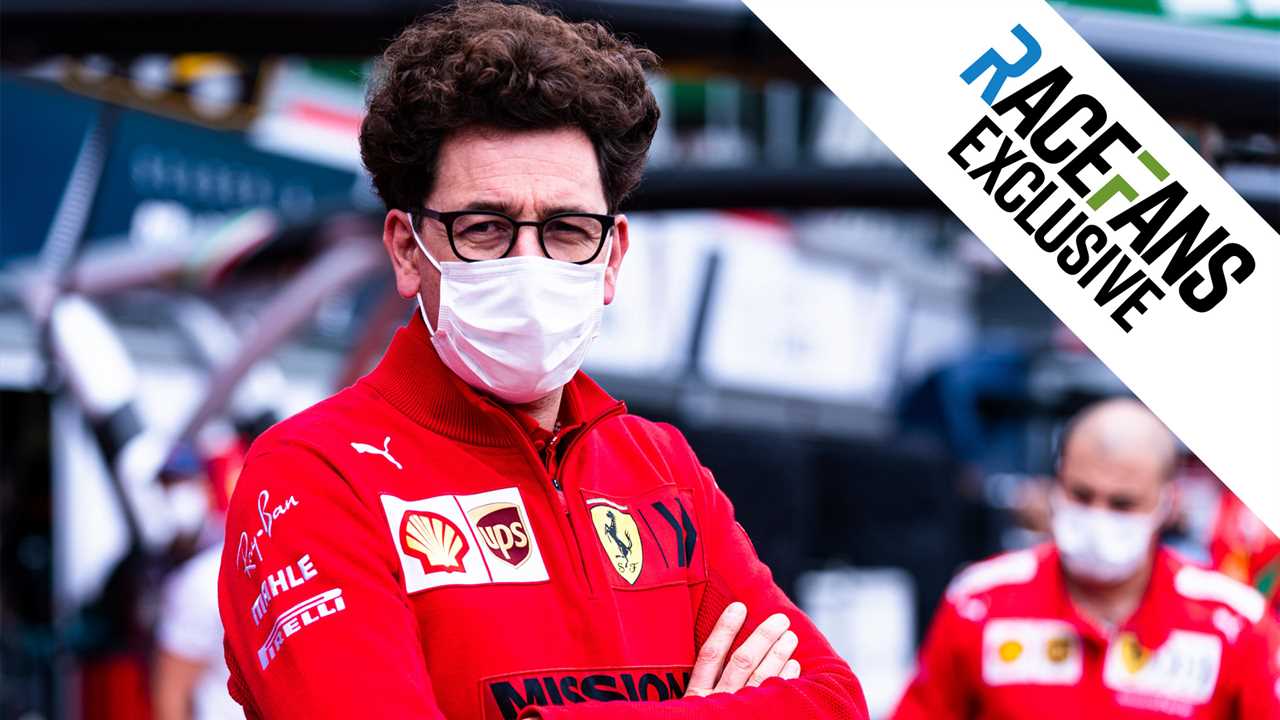
In Formula 1 timing – whether fortuitous or otherwise – is everything. This interview with Scuderia Ferrari managing director and team principal Mattia Binotto could hardly have been timed better.
Weeks ahead of the Monaco Grand Prix, we put it in the diary for Friday morning in Monaco. As it turned out, the two red cars topped the times sheets after Thursday’s preliminary runs through the principality.
Binotto, now in his third season in charge of the team is, as always, utterly courteous and ‘correct’ when we connect on Zoom. But I detect a more upbeat tone to his comments than had perhaps been present during our last interview almost a year ago – which is wholly understandable given the pressures the then-50-year-old been under at the time.
When I start our latest interview saying the Scuderia having needed to “rebuild” after last season’s sub-standard results, he takes issue with my word choice, stressing that it had not been necessary to “rebuild” with a full, root-and-branch effort.
After our interview, Ferrari’s Monaco weekend went awryInstead I refer to the “regrouping” of the team ahead of this season – and the challenges imposed by the abrupt departure in December of Ferrari president and CEO Louis Camilleri, for whom no replacement has yet been announced.
Given that Ferrari chairman John Elkann, Agnelli scion and boss of Exor – which controls the family’s various holdings including its interests in Ferrari and Stellantis, last-named being the newly formed Fiat-Chrysler and Peugeot-Citroen conglomerate – has his hands (over) full, does Ferrari not suffer convoluted decision-making processes, I ask?
“With Camilleri, we started the [current] journey; I think we invested a lot in our medium-to-long term future,” he explains. “The [signing of the] Concorde Agreement is one example, so I think a lot of work has been done to set the foundations.
Advert | Become a RaceFans supporter and
“John was already part of the time involved as chairman. I think today, it’s not a matter of rebuilding, it’s continuity from the past as Scuderia Ferrari and Gestione Sportiva (the sporting division), and obviously myself as managing director.
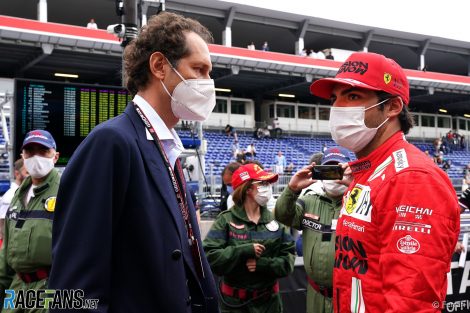
CEO John Elkann put in an appearance at Monaco“I have got the full autonomy and daily delegations of power. If I need their support I have got their support as I had it as in the past. I don’t think much has changed.”
Will this structure and autonomy, though, remain in place after Elkann appoints Camilleri’s replacement?
“John Elkann is fully aware, fully involved and coming to some races; it’s a very positive and constructive collaboration that we’ve got. He is chairman and CEO, so no I report to him whatever we are doing and the main [decisions]. I’m convinced that because Ferrari is a unique family there will always be good, positive collaboration.”
Does Binotto foresee any impact on Ferrari from the Stellantis merger, which created the world’s eighth-largest motor manufacturer comprising brands ranging from Abarth and Alfa Romeo through Maserati, Opel and Peugeot to Vauxhall and employs 350,000 heads?
“No, Ferrari is independent from Stellantis, and I do not see any impact. Mr Elkann is very fully committed to the Ferrari project. He has announced that we will have very soon another (Ferrari) CEO.”
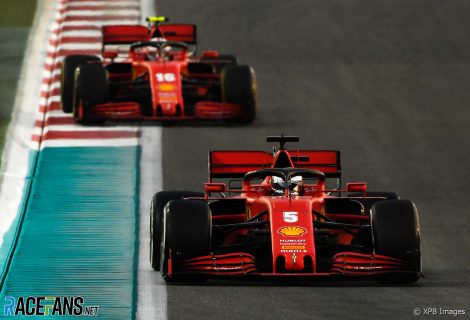
Ferrari hit a 40-year low with sixth in 2020 championshipResults-wise last year was, in Ferrari terms, an unmitigated disaster – sixth in the championship, no wins and just three podiums – so the pressure on Binotto was enormous, a situation not aided by snide comments and innuendo made by various paddock inhabitants that Ferrari’s infamous revolving door had begun spinning. How did he soak up the pressure and keep the team heading in the right direction?
“It was a very difficult season,” he says somewhat wryly, “a lot of pressure on my shoulders. I certainly felt the responsibility. But I know that in such a difficult time the team was united. It would have been very easy internally for the team to blame each cause, but it never happened. The team remain united, with the right winning spirit to move forward and demonstrate that we can do better.
“As a leader the most important thing is that the team is united, which means that you’ve got the right [next tier] leadership. For me it was important at the time to ensure that the pressures that I had were not reflected into the team.
Advert | Become a RaceFans supporter and
“My focus was on that and not listening to rumours and putting blame on myself and on the team, keeping focusing on trying to improve.”
Did he ever doubt that he had the full support and confidence of Elkann and Camilleri?
“Never doubt about either,” is the earnest reply, “because I know that I had that since the very start. As I said, I’m fully empowered and my responsibility, and, as I said, last year we invested a lot in our medium-to- long-term future and I think we made the right choices.
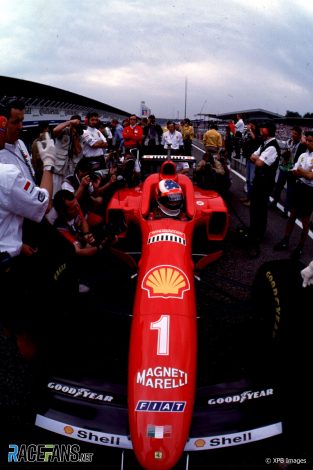
Schumacher waited five years for Ferrari title win“Now it’s time to continue building, a matter of managing the expectations. There are no silver bullets in F1. If we look at ourselves at the start of the nineties to 2000 with Michael [Schumacher] and Jean Todt, it took time to build the team.
“It took time at Red Bull or Mercedes; even more, if you look to Red Bull, it’s a long time that they are not winning [championships]. But they are the passions without let me say no revolutions inside of the team. They are passionate, working hard and working well, but to build it takes time. I know I have the full trust, and I feel the responsibility and it’s my job to commit to the world.”
That said, has he ever regretted accepted what is arguably the highest profile role in F1, one that carries a weight of expectation and has proven a poisoned chalice to many team bosses over the years?
“I have never regretted it,” he says immediately, sitting up for emphasis, “because I enjoy the passion which is Formula 1, I enjoy the passion for the Cavallino. I’ve always been a fan. I know it’s a big challenge but overall I’m very keen to be part of the family and give my full support to whatever is the result of the future project.”
“For me it’s more important to be part of the family rather than being team principal,” he continues. “Each person has got his own responsibility within the team and here is not one role which is more important. That’s my role today, I’ve been chosen to do it, I try to do my best.”
While car performance has improved – as evidenced by Thursday’s results – the team was also previously prone to operational errors, such as strategy slip-ups and reliability problems. Leclerc’s failure to start from pole position at home in Monaco, which occured after our interview, provided a further example. Surely these need to be eradicated if the team is to return to front-running form. How will these be overcome?
“That’s a good point, because as I said before, it’s a matter of time and passion. There are no silver bullets, so it’s a matter of approaching the mistakes as a lesson-learned approach, ensuring that each time a mistake is made it’s not a matter of blaming someone.
“It’s a matter of understanding what were the reasons, why we came to that choice and that mistake, and ensuring that we put in place actions to avoid them in the future. Stability in the team is crucial as well, we’ve got the same persons doing strategies since many years, the pit crew is stable.
“So, keeping stability and building a team that can improve time after time [is the objective], mistakes after mistakes is where we are putting our effort. If we look at the season we’ve had so far: solid race weekends; there have been difficult situations like in Imola, the weather, the rain, but I think we always made the right strategic choice and on the engineering side, the pit crew side it has been quite consistent. That’s important.”
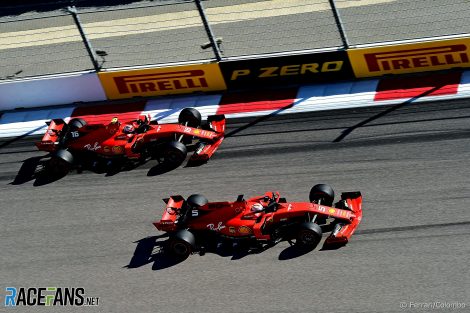
Transcript: Ferrari’s trouble with team orders in Sochi 2019One of the changes made since last season is the driver line-up, with the announcement of Carlos Sainz Jnr in place of Sebastian Vettel revealed even before the (delayed) 2020 season got under way. Why was the four-time champion’s contract not extended? Was the decision linked to some ‘moments’ Vettel and Leclerc had indulged in during 2019?
“No, no, no – what happened in 2019 was not the reason,” Binotto states emphatically. “When we had the lockdown at the start of last year it was the time for us to decide [on our future driver line-up]. It was even more important to decide very soon simply out of full respect to ourselves, and to Sebastian to give him the opportunity to find another seat.
“The fact that today he’s driving for Aston Martin, I’m very happy with that.”
Under this year’s sporting regulations teams benefit from additional wind tunnel hours on a sliding scale based on championship positions at start and mid-point of the season. Thus, Ferrari benefits from its 2020 sixth place, and whatever its interim classification after the first Austrian round. How much of a help has that been in developing next year’s car?
“I don’t think it is much [but] certainly it’s better to add some extra hours than not. But, if you look at the overall benefit it’s a couple of sessions on the wind tunnel. Normally a couple of session can give up to maybe a 10th second per lap, which can be significant when you are battling. It’s not a game changer.”
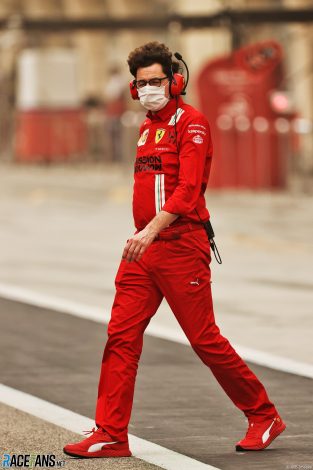
Binotto backed F1’s ‘balance of performance’-style measuresWas Ferrari in favour of this sort of ‘success ballast’ when it was first mooted?
“I was in favour because [F1] was looking for tricks to help convergence, like balance of performance, where you add [weight] ballast during race weekends,” he explains. “I think this is a better, let me say, ‘trick’.”
Talking ‘tricks’, does he believe that the budget cap will limit innovation by limiting spend available?
“As far as ‘is the budget cap limiting innovation?’ I’m not too sure. In F1 that are always regulations and what we are doing is pushing ourselves to the limit of the regulations in innovating within the framework of the regulations. We have technical, sporting regulation and now there are financial regulations, fair enough.
“The spirit is to somehow try to innovate to the maximum. So there will still be innovations that matter but now we need to be more efficient and chase each single [inefficiency]. What we are doing as Ferrari and the other top teams at the moment is before we cut any opportunities for development is to ensure that we are efficient and chasing wastage.
“In that respect there is much that can be done, which means that the financial regulations will help F1 teams become more efficient in the future, which is good and which is also innovation. It’s not technical innovation, but it’s still innovation. Lean engineering is something which is becoming more and more important.” As an example he lists simulation tools, saying they provide, “the cheapest way of developing.”
“There is so much which is so complex [in the wider automotive field] that you need good simulations, otherwise expenditure will be too significant,” he explains. “So F1 can become a platform for innovation in this respect.”
The current buzzwords is F1 and supercar circles are ‘biofuels’ and ‘synthetic fuels’, which both factions believe could make their respective products sustainable. Indeed, Porsche is actively pushing the development of such energy sources. Where does Ferrari stand in this regard?
“I don’t know if biofuel is the right definition, I would say renewable fuels,” comments the former head of Ferrari’s F1 engine department. That’s the way we should approach it, the technical specifications of it. I see that full electric is not the only solution for the future of the automotive. I think that hybrid engines are certainly an alternative.
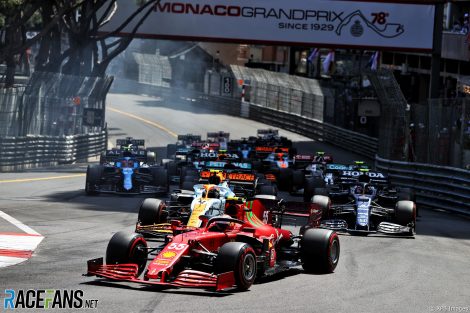
Sainz salvaged Ferrari pride with second place in Monaco“But the hybrid has to be with renewable fuels, with engines which are designed for the purpose of the electrification and the hybrid. That is not the case today, we’ve got engines where you’re plugging [in] electric parts. Now I think you’ve got an electric and you need to design the engines for the purpose of it.
“I think the alternative to full electric is engines designed for the purpose of being hybrid, powered by renewable fuels. F1 has to remain an important innovation platform for the automotive [industry], and I think that deciding the new regulations is key in that respect.”
Spearheading Ferrari’s F1 programme is probably the sport’s biggest challenge. As Binotto pointed out, it took Todt well-nigh seven years to return the Scuderia to championship-winning ways – and look what happened once the turnaround was complete: the team set records that have taken over two decades and half-billion annual budgets to beat.
In many ways Binotto calm approach to the job reminds of the Frenchman’s approach, and that is surely his biggest asset as he leads Ferrari’s regroup. But Binotto is also his own man, one with a more technical approach to the role than Todt had. As F1 faces its ‘new era’ that approach could well prove decisive.
RacingLines
Browse all RacingLines columns


